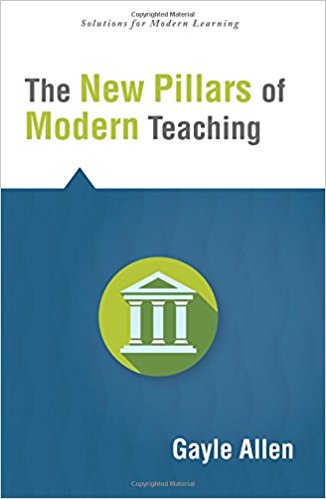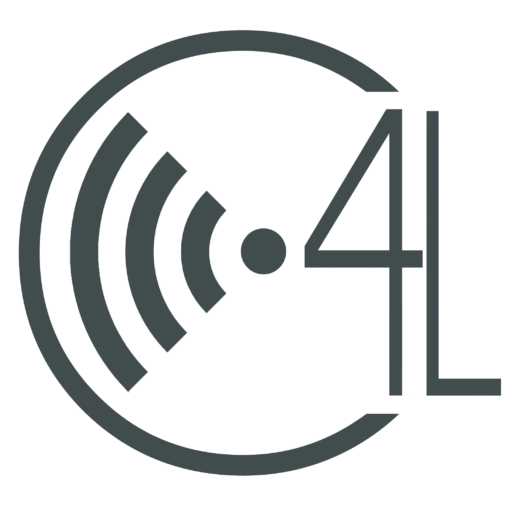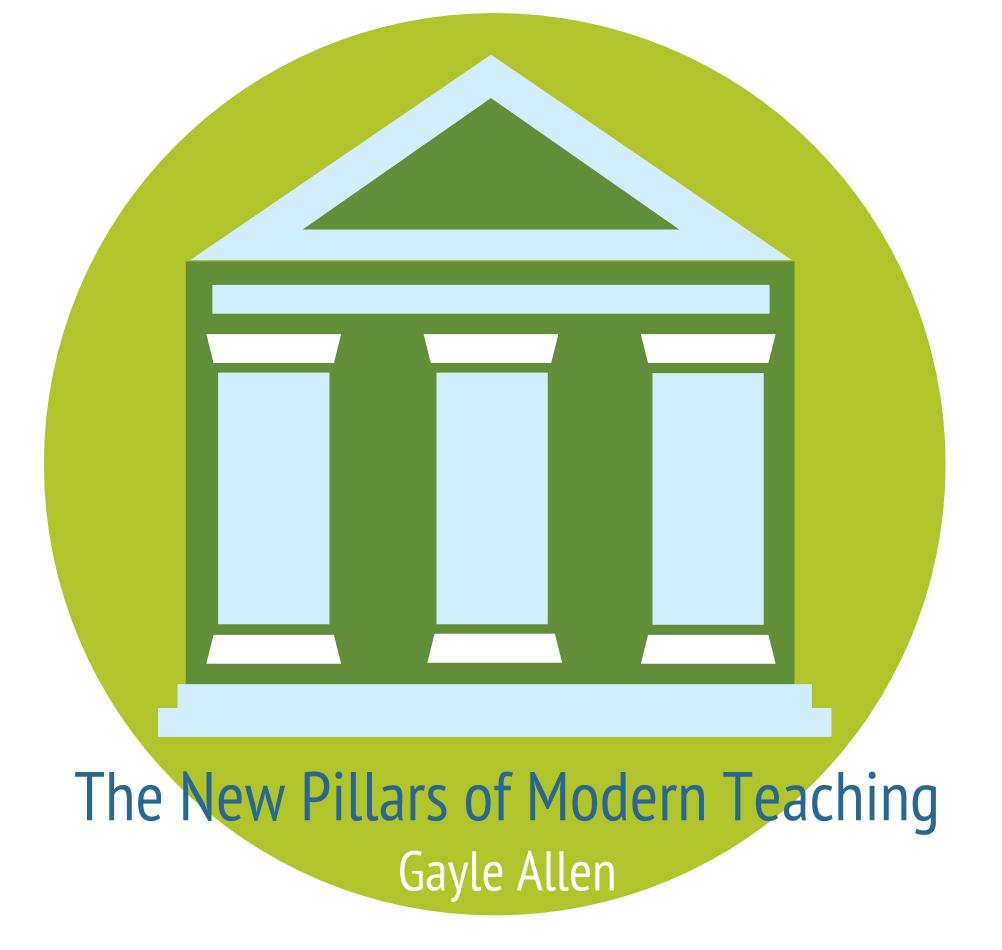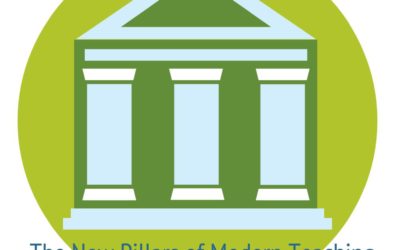
The New Pillars of Modern Teaching Book Study
By Gayle AllenJoin this group to learn more about current trends aimed at revamping the traditional pillars of teaching and learning for the digital world. Using real-world examples and relevant stories, Gayle Allen shares how educators can empower learners to design instruction, curate resources, and build feedback loops to assess progress. Acquire a deep understanding of the student’s role in the digital classroom, and recognize the importance of making mistakes to move forward.
The New Pillars of Modern Teaching
In The New Pillars of Modern Teaching, author Gayle Allen encourages readers to shift from traditional principles of teaching (instruction, curriculum, and assessment) to the modern pillars of curation, design, and feedback to fully engage students in their own learning. Drawing on the modern pillars’ positive effect in other fields, Allen persuades K-12 teachers that they can recreate these successes for students. This book helps educators empower and engage all learners.
Using this resource, K-12 educators will:
- Investigate the effect technology has on pedagogy and student engagement
- Shift from traditional to modern pillars of teaching to help students own their learning
- Read anecdotes from other industricts that have adopted design, curation, and feedback principles to great success
- Strengthen the relationship between teacher and student and increase the quality of instruction.
Book Study Conversations
The book study nitty-gritty: You will receive 6 hours of Professional Learning credit for taking part in this study and completing all online discussions. There are six scheduled conversations available that will cover the 5 chapters in The New Pillars of Modern Teaching. For each conversation, read that section of the book and provide your feedback to the questions. Be sure to label your questions with the question number in each comment field. You can move as quickly or as slowly as you like, but your work needs to be finished by August 8th. To register for this book study and receive a certificate when finished, please click here. If you have questions, you can use the help button or email me directly at dana.grieb@rcisd.org. I look forward to learning with you!
The Help Button
Conversation 1: Preface and Intro
Preface & Introduction to the New Pillars of Modern Teaching Welcome to the Preface and Introduction to The New Pillars Modern Teaching. In the preface, Will Richardson sets the stage for the book with a brief history of essays and books that...
Conversation 2: Why We Need to Change Pedagogy
Chapter 1: Why We Need to Change Pedagogy In Chapter 1 of The New Pillars Modern Teaching, Gayle Allen lays the groundwork for why we must change pedagogy in our schools. Data shows that the majority of U.S. workers are not engaged in their work. Is this...
Conversation 3: Pillar One – Design
Chapter 2: Pillar One - Design The focus of Chapter 2 is the first pillar: Instruction, which Gayle Allen argues will shift to Design. Traditional approaches to instruction developed during a time of information scarcity and put the teacher in between the...
Conversation 4: Pillar Two – Curation
Chapter 3: Pillar Two - Curation The focus of Chapter 3 is the second pillar: Curriculum, which Gayle Allen argues will shift to Curation. According to Allen, the transition from Curriculum to Curation requires us to embrace the abundance of information...
Conversation 5: Pillar Three – Feedback
Chapter 4: Pillar Three - Feedback In this chapter, Allen notes that high quality feedback accelerates the learning process. In the example provided, Allen describes technology-based examples of feedback providers such as a fit-bit, that is...
Conversation 6: Iteration and Failing Fast to Learn
Chapter 5: Iteration and Failing Fast to Learn This chapter focuses on the importance of "doing" and the impact it has on student learning. By using iteration and failing fast as strategies for scaffolding learning with the three new pillars of modern teaching, the...


